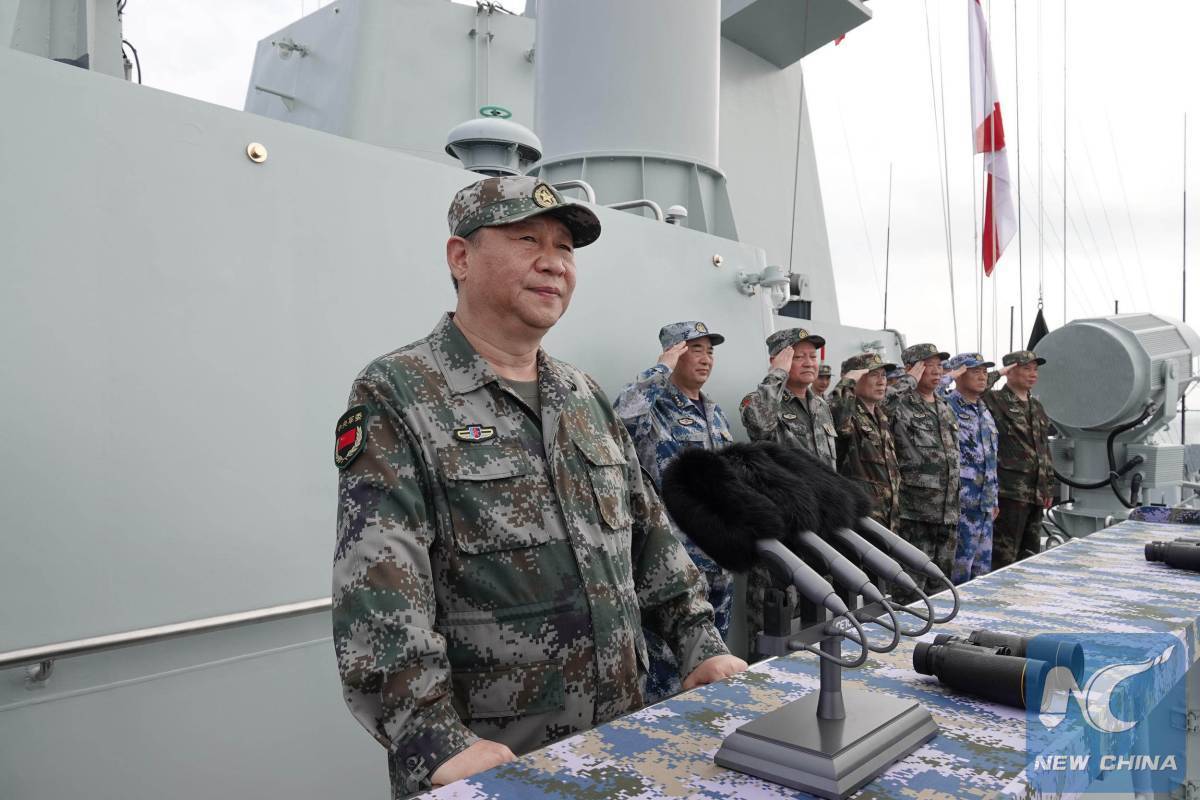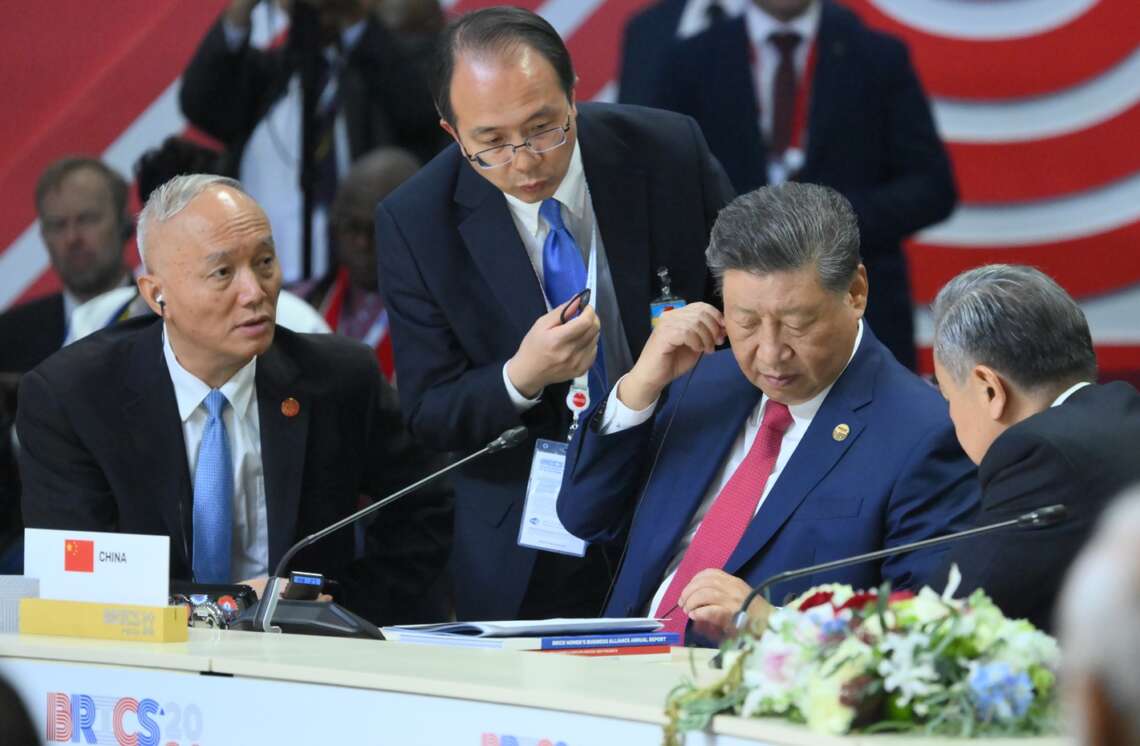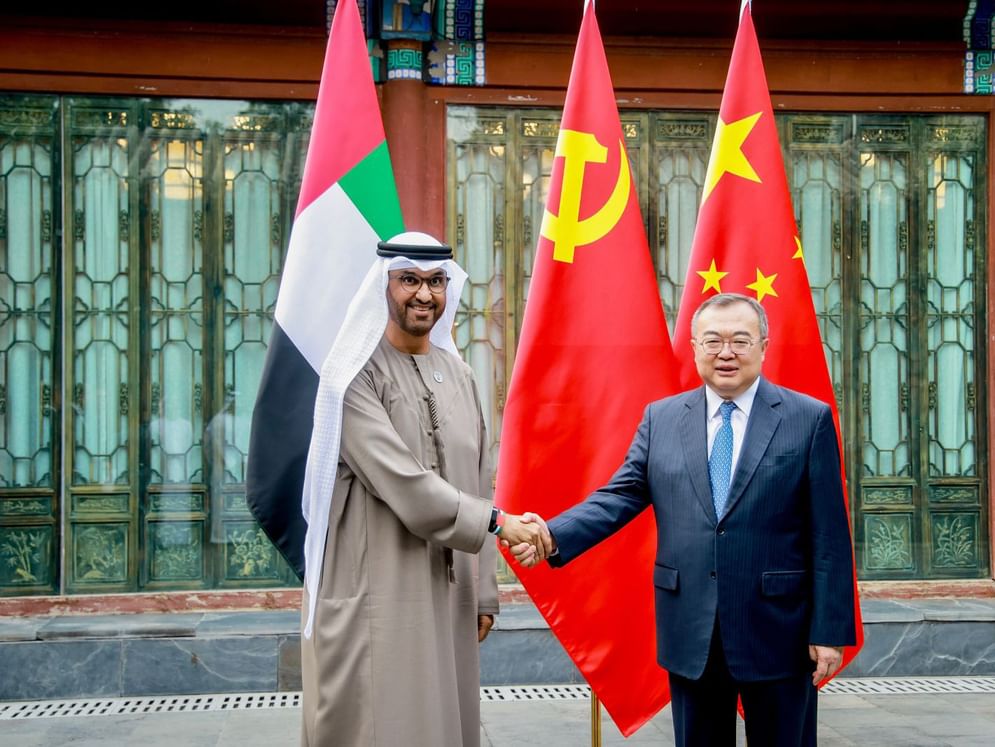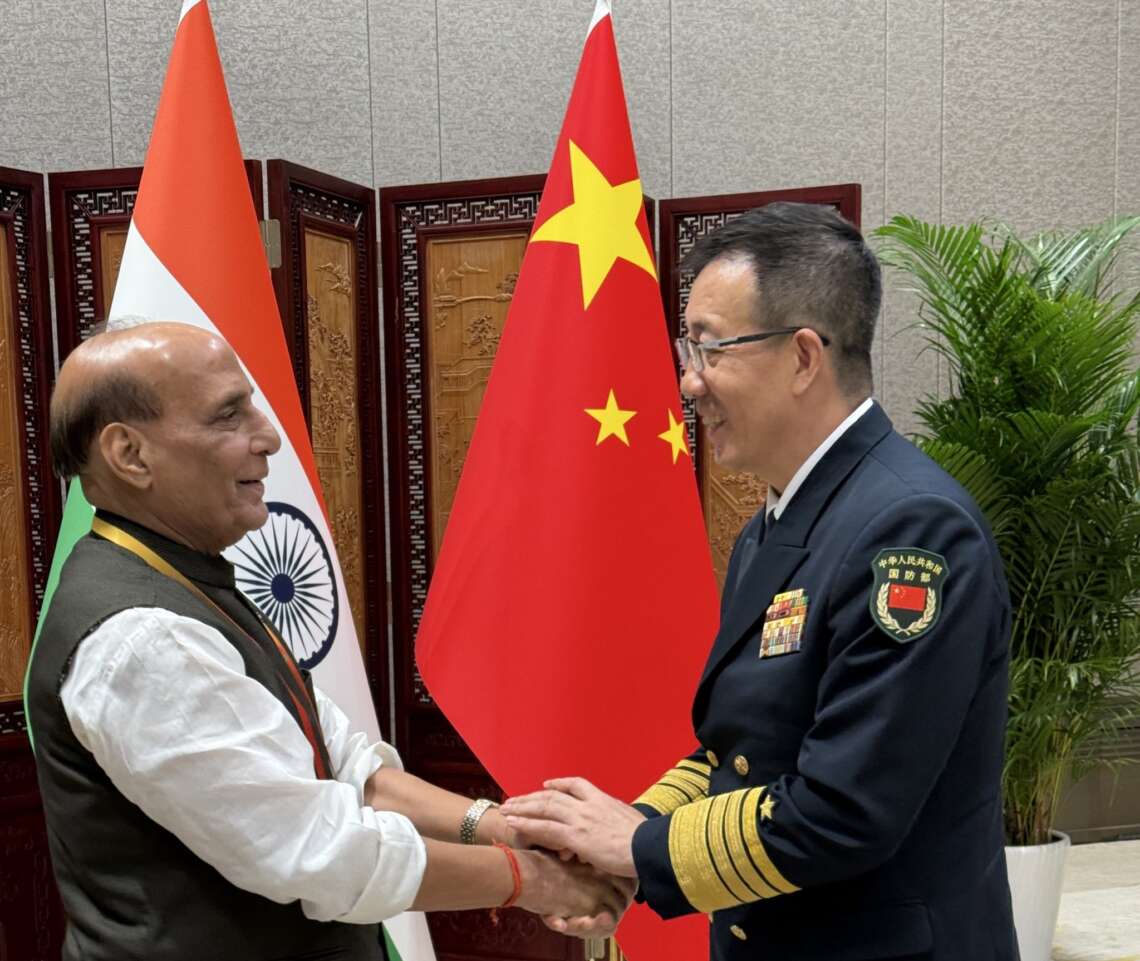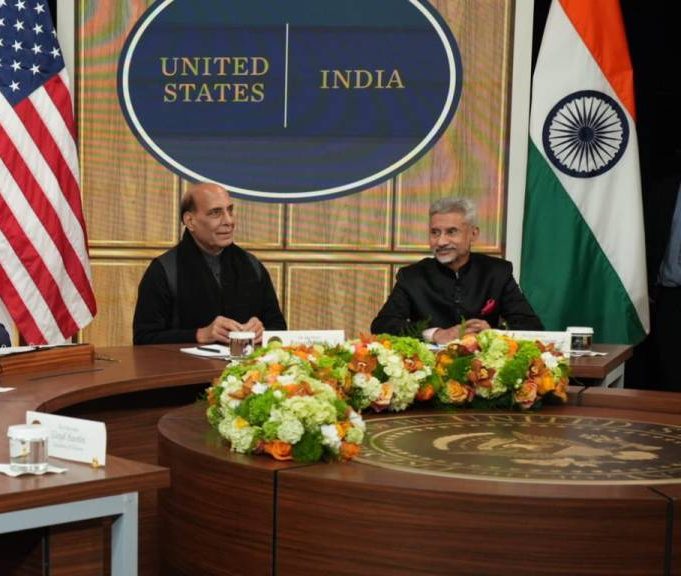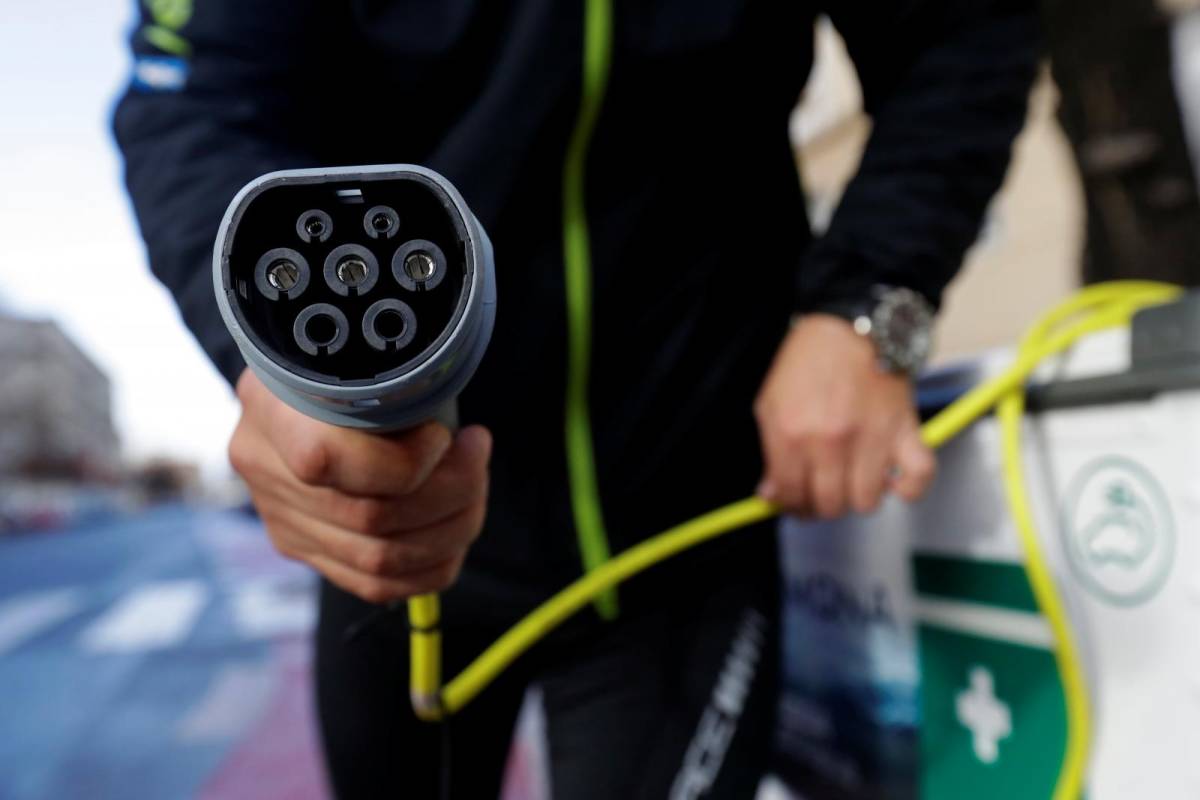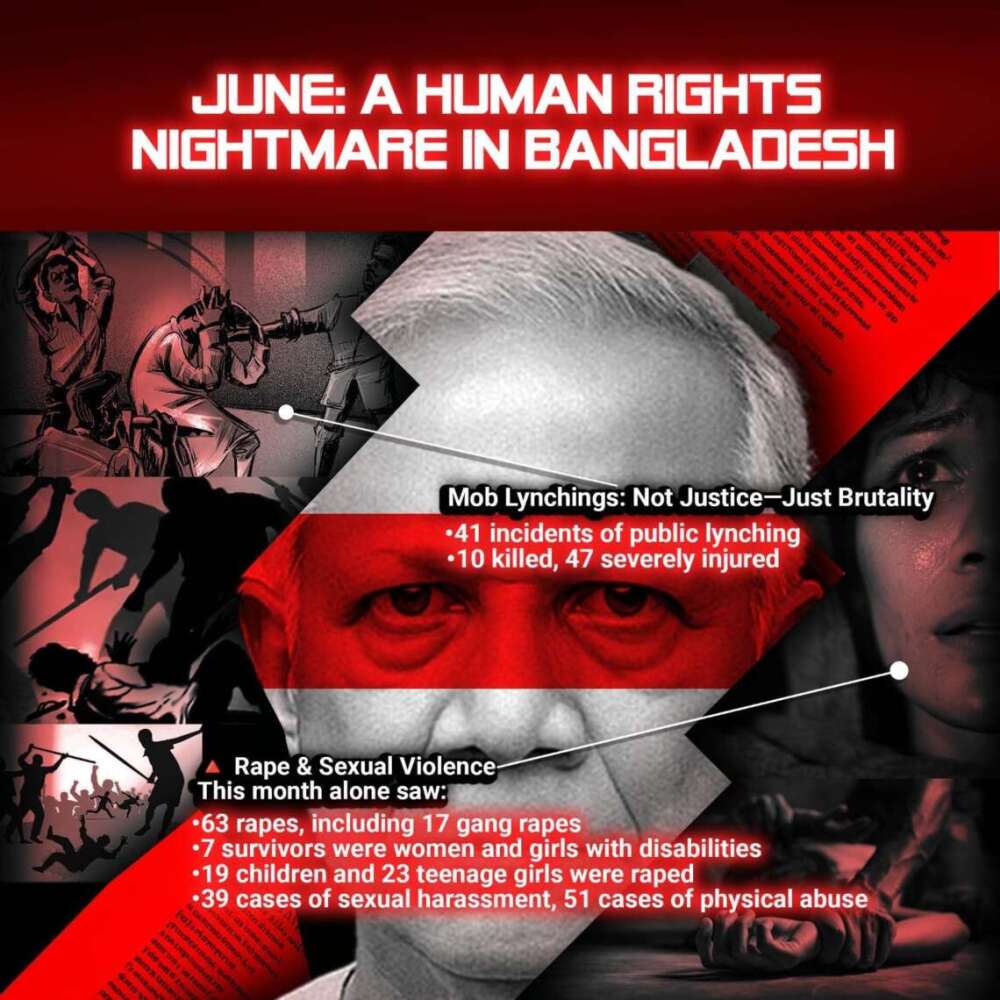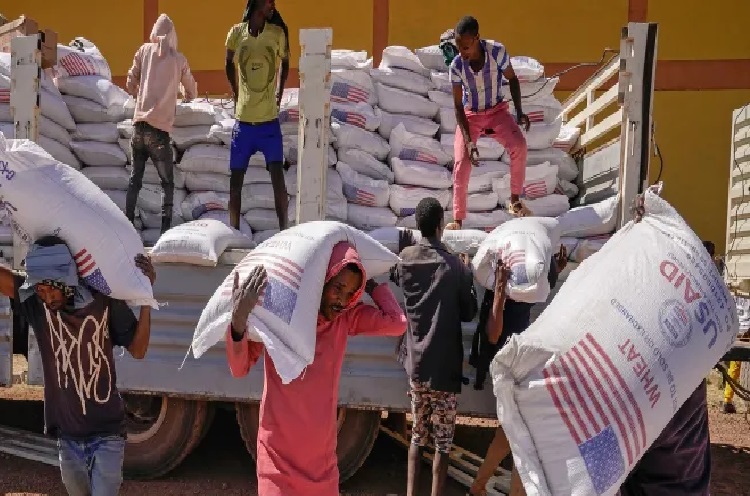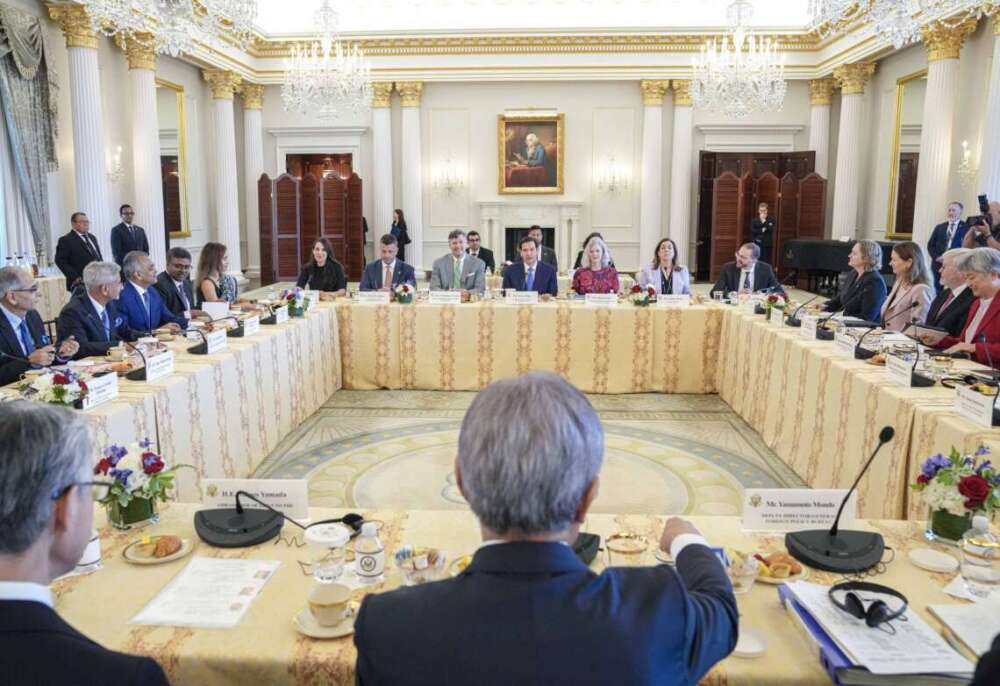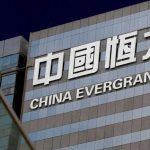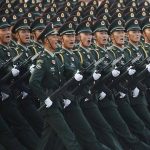Were the conflict to remain confined to Taiwan, the PLA would have the upper hand. Once the field of operations widens into other PLA-afflicted theatres, from Djibouti to Gwadar to Hambantota to Kyaukpyu, etc., the PRC would lose control of the military situation even across the Taiwan Straits, writes Prof. Madhav Das Nalapat
War clouds are gathering across the Indo-Pacific, caused by the rush towards domination of that space by CCP General Secretary Xi Jinping. Observers have studied the arbitrary, ruthless manner in which Xi has consolidated his grip over the higher echelons of the CCP, a political party that has over 90 million members and which controls China. Unlike Deng Xiaoping, who also worked to fulfil the goals of the CCP but was pragmatic in deciding how these were to be achieved, Xi is in what seems a reckless rush to PRC primacy, while further expanding the control of the party-directed state machinery over the population.
Although Xi has been compared to Chairman Mao Zedong on numerous occasions, the reality is that behind his sometimes-blustery rhetoric, Mao was a realist, who acted only when he was forced to (as in Korea in the 1950s war) or (as in the 1962 conflict with India) regarded conditions as opportune for success. There were his ill-fated initiatives such as the Great Leap Forward in the 1950s, which ended up as a Great Leap Backward where the economy was concerned.
The CCP Chairman believed that, inspired by the Chinese Communist Party led by himself, ordinary citizens could defy the laws of production and even triple the overall production of iron needed for infrastructure development. He turned out to be wrong, and infrastructure in the PRC remained in a doleful state. There was no room in Mao’s mind for himself or the PRC to play second fiddle to any country or individual except as a temporary tactic. He bristled at the assumption of Joseph Stalin and later Nikita Khrushchev that it was the USSR, not the PRC, that was the leader of the international communist movement, but kept his peace until the mid-1960s out of pragmatic considerations.
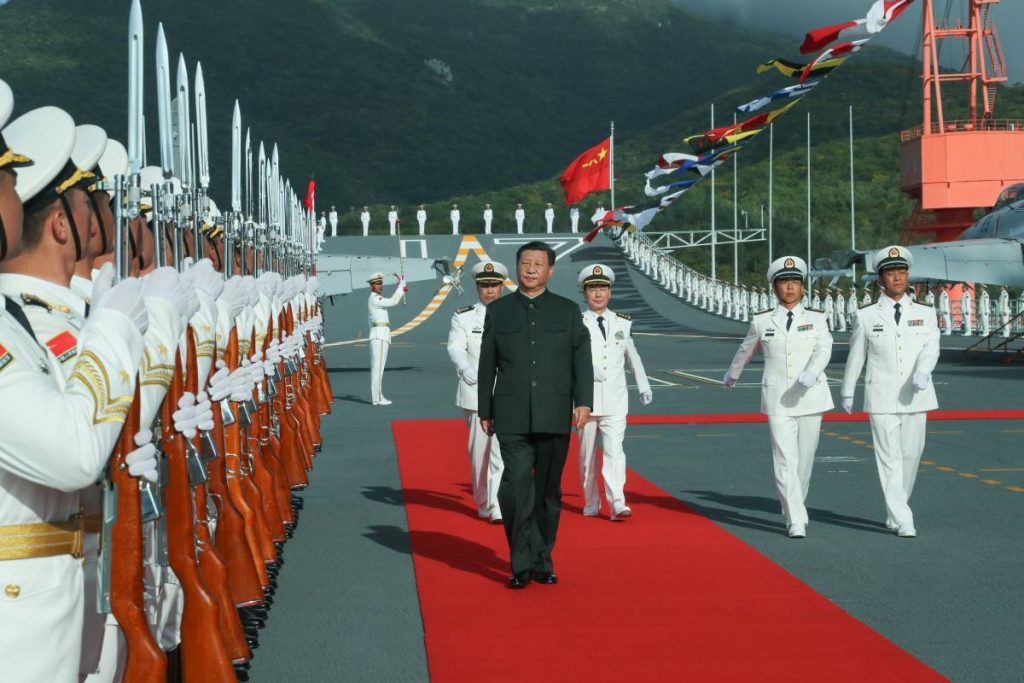
U.S. GAVE UNNECESSARY CONCESSIONS TO PRC
During the latter part of the 1960s, Chairman Mao intensified the sending out of feelers to Washington for a rapprochement against their common enemy, the USSR. Eventually, it was an affluent lady in Hong Kong who on behalf of CCP elements contacted an acquaintance, then Vice-President Richard M. Nixon, and gave him the idea that such a rapprochement was feasible, and that it would substantially boost Washington’s capability to hasten the fall of the Soviet Union, an eventuality that had also been pursued by Mao since the 1960s. Soon after he took over as President of the US in 1969, Nixon activated this Hong Kong channel and when a welcoming response was received from Beijing, he sent an initially sceptical Henry Kissinger to that capital.
It is another matter that because of the unlimited access that Kissinger used to give key media personalities, the credit (and now the blame) for Nixon’s opening towards the PRC was given to Kissinger. There began to appear glowing reports on his diplomacy, all quoting “high-level” anonymous sources, all of which comprised Kissinger himself. He soon got powerfully influenced by Premier Zhou Enlai, who would have become a billionaire selling used cars had he been a US citizen, and charmed his US interlocutor into ensuring that numerous concessions were given to the Chinese side that were far in excess of what the CCP leadership had anticipated and would have been satisfied with.
TAIWAN’S RISK WINDOW OPENING
Although troves of sensitive intelligence, including on India, began to be handed over to the PRC on a regular basis by Kissinger and his successors, it was after the ascent to power of Deng Xiaoping in 1978 before business-to-business links between the US and China grew. Among the most enthusiastic in investing money in China were Japanese businesspersons, who were followed a few years later by the Taiwanese. Fast forward to when Xi Jinping was in charge of Fujian province, from where in past times most of those who crossed the Taiwan Strait and settled down had come from. People in the province are considered to have a gambling instinct, and this may have been a factor in the exodus that began to significantly populate the island with Fujianese around two centuries ago.
The next wave of immigrants from China came in 1949, and was composed of individuals from all across China, which had by then fallen to the CCP, thereby forcing KMT supremo Chiang Kai-shek to seek refuge in Taiwan. While the original settlers from Fujian are known within the island country as “Taiwanese”, those who came ashore with Chiang are referred to as “Mainlanders”. The latter began grabbing much of the land and assets of Taiwan, breeding the dissatisfaction and desire for freedom from control by outsiders that became the dominant mood in Taiwanese society across all except the very old among the “Mainlanders” by the close of the initial decade of the 21st century.
The “Taiwanese” segment of Taiwan’s population tilts towards the independence-minded DPP rather than the PRC-friendly KMT.
The people of the island country want overwhelmingly to retain their freedom from PRC control, but equally they crave a peaceful future. The train of Taiwanese democracy moves along these two tracks, but the vow by CCP General Secretary Xi Jinping that Taiwan would by whatever means necessary be united with the PRC during his tenure has unsettled the status quo. That Xi will fulfil his objective of securing an unprecedented third term in office by next month is almost certain. However. in that process, Xi would have squandered almost all of the goodwill within the CCP that he had when taking charge in 2012. In his efforts at securing a fourth term in office, Xi would need to boost his popularity within the ruling party substantially, and is likely to consider the conquest of Taiwan the surest path towards that acclaim. Which is why the CCP General Secretary’s impending third 5-year term beginning in October 2022 and lasting into 2027 has created a window of risk for Taiwan unprecedented since 1949.
There have been past efforts at subduing Taiwan, such as during the 1958 Second Taiwan Straits crisis that saw the massive shelling of Taiwanese territory by the PRC, a crisis in which there were several thousand casualties on the Taiwanese side, and almost an equal number on the Chinese side, as the KMT government in Taiwan responded with all the firepower they had been given by the US. The Third Taiwan Straits crisis was in 1995, when there were efforts at intimidation through aggressive posturing by the PLA. These were puny in comparison with the level of attempted intimidation caused by the Fourth Taiwan Strait crisis, which erupted during and after House of Representatives Speaker Nancy Pelosi’s visit to Taiwan on 2 August 2022, a visit that was used as an excuse by Xi to resort to a brazen show of military force across the perimeter of the island country.
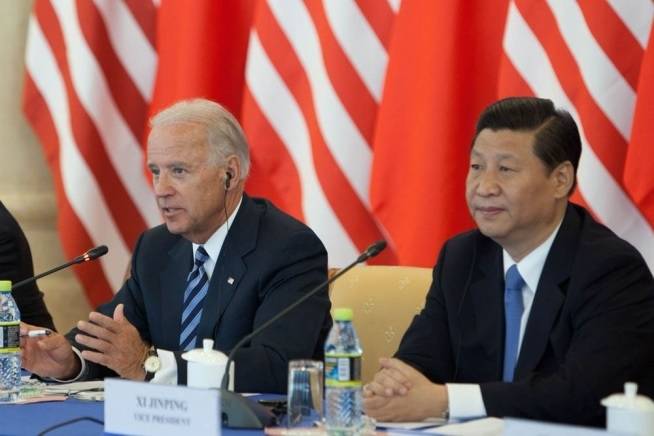
CMC DECIDES POLICY ON TAIWAN
For Xi Jinping, the key institution in China is the Central Military Commission (CMC), which he has headed from the start of his tenure as the party General Secretary. CMC planners are as eager as Xi himself to win control of Taiwan during his third term in office. Whether in the matter of economic or foreign policy, or in the way the military is showcased and used, Xi is as different from Deng as the diminutive but extraordinary leader of the CCP was from Mao. Within the CMC, Xi has steadily transferred responsibility in the planning of operations from older, more cautious senior officers to a youthful cohort of Senior Colonels and Major-Generals who share his aggressive confidence towards a future conflict across the Taiwan Straits.
Through a show of force and by psychological and other covert operations in Taiwan, the US and Japan in particular, the CMC together with intelligence and asymmetric warfare specialists, is seeking to create a situation where (a) the Taiwanese population does not put up resistance to an invasion by the PLA but “accepts the inevitable by refusing to try and repel the PLA”, (b) that the Quad will remain on the sidelines of the conflict and not actively involve itself in operations designed to frustrate PLA moves to take over Taiwan, which means that (c) the conflict will remain confined to Taiwan with no recoil anywhere else. There is confidence in the CMC, especially after his 2022 decision to hand over power in Afghanistan to the Taliban, that President Joe Biden lacks a “tiger mindset”, and will recoil from putting US lives in danger should his forces join in the battle to defend Taiwan.
LIVES DON’T MATTER TO XI
In these calculations by the CMC, the feelings of the population of Taiwan are regarded as inconsequential. It may be remembered that in the 2019 elections in Hong Kong, over 85% of seats and 80% of the vote went to individuals and groups that favoured complete autonomy for Hong Kong from the control of the PRC. From that time onwards, “winning over the people” was dropped as a strategy by the use of the bludgeon. In mid-2020, the National Security Law was passed in the always almost wholly compliant PRC legislature. Soon after that, autonomy was extinguished in Hong Kong, and the HKSAR was converted in effect as just another province of China.
A similar use of armed force is expected to extinguish any effort by the elements within Taiwan (and these account for the overwhelming majority of the population) that favour dissociation from the PRC. After the occupation, “traitors” (i.e. those known to be opposed to Beijing’s control) are to be put on trial, and most will escape with jail sentences, while a few of the “extreme independence elements” would be slated for an assisted entry into the afterlife. Hundreds of thousands of citizens are to be identified and “re-educated so that they love the Party and Motherland” i.e. the PRC.
In many ways, this would be similar to what has been happening for decades in Xinjiang, where the Uygur population is being taught to “love Party and Motherland” by being put in “re-education centres” where they are being subjected to teaching methods not normally found in schools where pupils are not “re-educated” but simply educated.
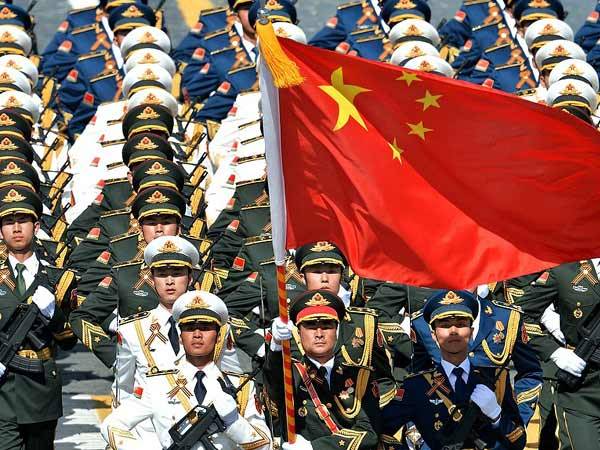
IMMEDIATE ESCALATION KEY TO QUAD VICTORY
Given that US bases in Japan would be within range of PLA artillery firepower were Taiwan to be invaded, it is improbable that even a US President not known for his “tiger” instinct would repeat an Afghanistan 2021 scenario in Taiwan and allow the PLA to take control of a country that is central to US and allied primacy in the Indo-Pacific over the Sino-Russian combine. What would send the PLA plans for a six is the rapid initiation, after initiation of hostilities by the PLA, of Escalation Dominance by the Quad members. This would involve broadening the arena of conflict to the whole of the Indo-Pacific. It may be remembered that in 1965, Prime Minister L.B. Shastri frustrated the plan of General Ayub Khan to grab the entirety of Kashmir by broadening the conflict across the entire India-Pakistan border.
Were the conflict to remain confined to Taiwan, the PLA would have the upper hand. Once the field of operations widens into other PLA-afflicted theatres—from Djibouti to Gwadar to Hambantota to Kyaukpyu and other locations where the PLA has set up overt or covert capability—the PRC would lose control of the military situation even across the Taiwan Straits. Only in a scenario that involves the confinement of operations to Taiwan can the CMC scenario of taking control of the island nation in the 12-16 days that its planners believe is the time that they judge to be too short for the US in particular to respond in force sufficient to an invasion by the PLA.
Apart from the conflict being confined to Taiwan, another calculation is that the armed forces of Taiwan would very quickly cease to resist, once it became clear to them that external help would be too late and insufficient to affect the final outcome. Similar calculations were made by Corporal Hitler when he approved Operation Sea Lion, the invasion of the British Isles, in 1940. That failed to work, and in the case of Taiwan as well, Xi appears to be making the miscalculation that CCP-resistant forces would fold as rapidly as they did in Hong Kong, a location that has been occupied by the PLA since 1997.
MISSTEPS BY PRESIDENT BIDEN
The glad tidings for the CMC are that the significantly Eurocentric band of senior officials accumulated by the 46th President of the US are coming up with absurd scenarios that envisions a Ukrainian-style resistance by the Taiwanese people to a PLA invasion. They are therefore discouraging the Taiwanese military from going in for the longer-range weaponry needed in an actual conflict, and are asking them to confine their purchases (unlike in the case of Ukraine, which gets all its armaments free of cost, Taiwan is made to pay for each round of artillery) to items that are designed to defend against a beach landing. Some in the Biden administration are talking of getting the Taiwanese to purchase MANPADS so that every citizen becomes a defender, as in Ukraine.
The hi-tech Taiwanese are very different from the oil drilling and farming communities of Ukraine. And having seen what has been happening to Ukraine, most Taiwanese appear to be in no rush to follow the example of that unfortunate country.
Both the State Department as well as the National Security Council in the US are led by Europeanists in the Biden mould, and both are pitted against the Pentagon in insisting that Taiwan should be given only the means to launch a response to a PLA offensive on the landing shores rather than an active defence strategy in which east coast cities in the PRC would be at risk in the event of PLA aggression. The State Department and NSC’s unreal and wholly reactive strategy that is also favoured by many in the White House plays to the CMC playbook of a quick, sharp cross-strait localised war that accomplishes its tasks before any opposing force can react in force.
Should the CMC be convinced that broadening of the conflict by the Quad to other theatres within the Indo-Pacific and active rather than reactive defence by the Taiwanese are outside the realm of possibility, the prospects for initiation of war by the PLA during 2023-27 increase substantially, just as they did in the 1930s as a consequence of the policy of appeasement followed by France and Britain. And even when that was abandoned, the French army did what the PLA now wants the Taiwanese military to do, which is to surrender at speed.
Whether it be Taiwan or India, both the State Department as well as the NSC analyse the situation from the Europe First (when not Europe Only) perspective that was a feature of the Clinton administration. Hence the inability to understand the full impact of the economic and other consequences on the policy of the White House to try and grind the Russians down at the cost of Ukrainian lives and land, and to plead for help to Beijing when that capital is seeking to prolong that conflict for as long as needed to complete preparations for Xi’s China Dream (and Taiwan’s Nightmare) to come into operation.
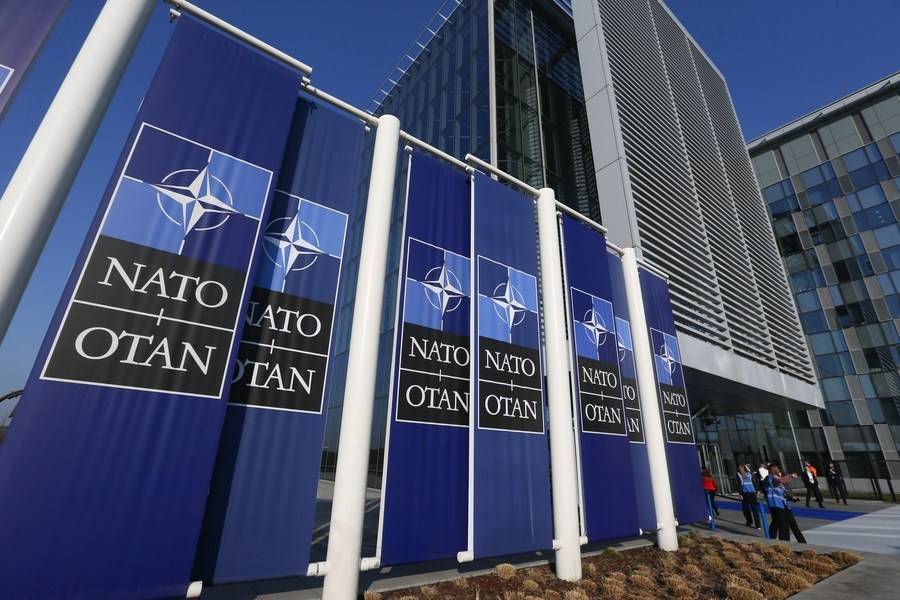
NATO CHASING THE WRONG ENEMY
Immediate escalation of a cross-strait invasion of Taiwan into other theatres and arming the Taiwanese military with the weapons needed for active defence may persuade Xi that the risks of an attempted takeover are too high for him to take. Not for the first time, policymakers in a democracy that are frantic to prevent a war end up creating the conditions for its initiation.
The clock will begin ticking as soon as Xi gets his third 5-year term, and thus far, NATO appears to still believe that it is Moscow that represents the most potent threat to its membership and not China. This has, however, not discouraged countries ranging from the Marshall Islands to Tuvalu to Taiwan, not to mention the key members of ASEAN, to boost their defences against any aggressive move by the PLA. Their morale and confidence have been strengthened by the resolute manner in which India has been dealing with the threat posed by a revisionist superpower out to upend the status quo to its exclusive benefit.


